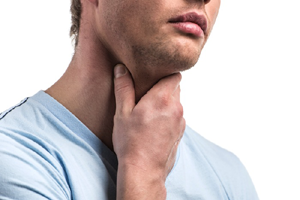 What is Reflux? What is Specific to Throat and Laryngeal Reflux?
What is Reflux? What is Specific to Throat and Laryngeal Reflux?
Reflux is the backward flow of stomach contents containing acid and digestive enzymes into the esophagus or further up into the throat and laryngeal area. If the reflux reaches the esophagus, it is called gastroesophageal reflux disease (GERD); if it reaches the throat, larynx, and vocal folds, it is referred to as laryngopharyngeal reflux (LPR, throat/laryngeal reflux). Reflux into the esophagus is more commonly recognized and typically causes a burning sensation in the chest. In contrast, throat-laryngeal reflux often does not produce this burning sensation, which is why it is also referred to as “silent reflux.”
What Symptoms Does Throat-Laryngeal Reflux Cause?
In laryngopharyngeal reflux, the throat, larynx, and vocal folds are directly affected by the backflow of acidic stomach contents. Therefore, symptoms are usually localized to these areas. Patients may experience:
- Frequent throat clearing
- The sensation of a lump or something stuck in the throat
- Hoarseness or changes in vocal quality
- Excessive or thick throat mucus
- Bitter or unpleasant taste in the mouth
- Persistent tickling-type cough
- Difficulty in swallowing or frequent swallowing effort
How is Throat-Laryngeal Reflux Diagnosed and Treated?
The symptoms of throat-laryngeal reflux are not disease-specific, meaning many other conditions can present with similar complaints. For this reason, patients with suspected reflux should be evaluated by an ENT (Ear, Nose, and Throat) specialist.
Once the diagnosis of reflux is established and other conditions are excluded, lifestyle and dietary modifications are always recommended. In addition, medication may be prescribed if needed. Although the drugs used for gastroesophageal reflux and laryngopharyngeal reflux are often similar, the dosage and duration of treatment typically differ. For throat-laryngeal reflux, it is important to use medications at the correct dosage and for an adequate duration (usually 3–6 months).
Some patients may also benefit from additional rehabilitative methods such as vocal hygiene and voice therapy. In rare cases where patients do not respond to medical treatment, surgical interventions such as fundoplication or laparoscopic fundoplication may be required. In certain situations, such as airway stenosis or vocal fold granulomas secondary to reflux, surgical treatment may also be necessary in addition to medical therapy.
Recommended Lifestyle and Dietary Modifications for Prevention of Throat-Laryngeal Reflux
- Avoid weight gain and maintain an ideal body weight
- Avoid tight clothing that compresses the abdominal area
- Do not lie down, bend over, or exercise immediately after meals
- Avoid eating or drinking (other than water) within 3 hours before bedtime
- Eat small and frequent meals instead of large ones
- Avoid stress
- Do not smoke or use tobacco products
- Avoid alcohol
- Elevate the head of the bed by about 10–15 cm
- Avoid menthol-containing gum, candy, cough syrups, and mouth rinses
- Limit foods that can trigger reflux, including:
- Fatty or spicy foods
- Caffeinated beverages (coffee, tea, cola, etc.)
- Carbonated drinks
- Tomatoes and tomato-based products (sauce, ketchup, etc.)
- Citrus fruits (orange, mandarin, lemon, etc.)
- Pineapple
- Vinegar and lemon juice
- Milk and dairy products
- Chocolate
- High-fat nuts (peanuts, hazelnuts, cashews, etc.)
- Foods with high mint content